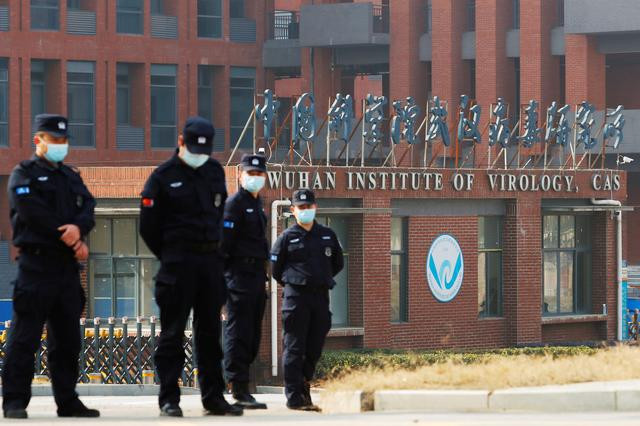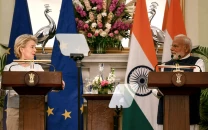China must cooperate better with Covid origin probe: WHO
UN health agency has been facing intensifying pressure for a new, more in-depth investigation of Covid-19's origins

The WHO chief urged China Thursday to be more cooperative in the next phase of investigations into the pandemic origins, demanding more access to raw data.
Speaking to reporters in Geneva, Tedros Adhanom Ghebreyesus also acknowledged that a prior push to all but rule out the possibility that Covid-19 may have escaped from a lab had been "premature".
He said that the WHO was laying the groundwork for moving forward with fresh investigations into where Covid-19 came from, adding "we hope there will be better cooperation to get to the bottom of what happened."
The UN health agency has been facing intensifying pressure for a new, more in-depth investigation of Covid-19's origins.
The WHO only managed to send a team of independent, international experts to China's Wuhan in January, more than a year after Covid-19 first surfaced there in late 2019, to help their Chinese counterparts probe the pandemic origins.
Tedros acknowledged Thursday that one of the main challenges during the first phase of the investigation was "access to raw data... The raw data was not shared."
"And now we have designed the second phase of the study and we are asking actually China to be transparent, to be open and cooperate, especially on the ... raw data that we asked for (in) the early days of the pandemic."
- Lab leaks 'common' -
The long-delayed report after the first phase of the investigation was published in late March, with the international team and their Chinese counterparts drawing no firm conclusions about the pandemic origins.
Instead they ranked a number of hypotheses according to how likely they believed they were, finding that it was most likely the virus jumped from bats to humans via an intermediate animal, while a theory involving the virus leaking from a laboratory was deemed "extremely unlikely".
The investigation and report have faced criticism for lacking transparency and access, and for not evaluating the lab-leak theory more deeply -- a mere 440 words of the report were dedicated to discussing and dismissing it.
Long derided as a right-wing conspiracy theory, and vehemently rejected by Beijing, the idea that Covid-19 may have emerged from a lab leak has been gaining increasing momentum in the United States especially.
Tedros, who emphasised that all theories remained on the table immediately after the report was published, reiterated Thursday that more investigation into the lab leak hypothesis was needed.
"There was a premature push" to rule out that theory, he said.
The WHO chief, who is an immunologist, stressed that he himself had previously worked as a lab technician, "and lab accidents happen."
"It's common. I have seen it happening," he said, stressing that "checking what happened, especially in our labs, is important."
"We need information, direct information on what the situation of these labs was before, at the start of the pandemic."
Tedros had previously lamented that the international team did not have access to all the raw data needed to make a proper assessment.
Pointing to the more than four million official deaths from Covid worldwide, the WHO chief said: "I think we owe it to them to know what happened."
"We need to know what happened to prevent the next one."



1725534939-0/BeFunky-(72)1725534939-0-208x130.webp)















COMMENTS
Comments are moderated and generally will be posted if they are on-topic and not abusive.
For more information, please see our Comments FAQ